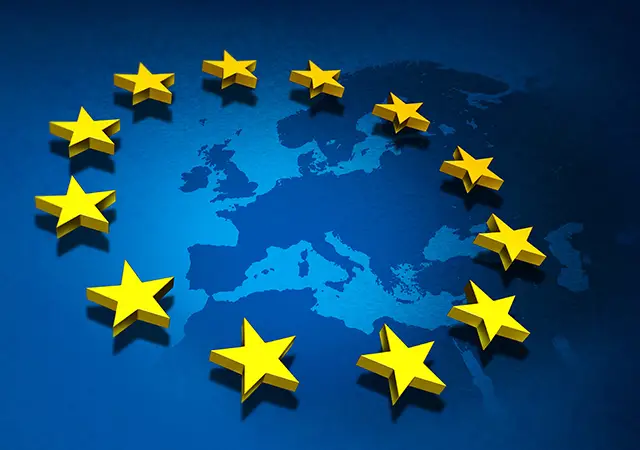
LONDON (InsideBitcoins) — As of January 1st, the European Union instituted new rules regarding electronic services as a taxable commodity. Whilst not directed at bitcoin specifically, the directive refers to supplying a ‘digital service’ to another member state and as such one clear requirement for the supplier would be determining if they are providing this service to a consumer or a business. In the first instance, value added tax (VAT) is simply added to the cost of the service being provided, in the second, it is the consumer’s (i.e. the business purchasing the service) responsibility to account for any VAT due to the relevant tax authority.
The changes, designed to “create a level playing field… by removing the current competitive advantage of EU member states with lower rates of VAT,” could in theory have consequences for cryptocurrencies across the EU.
The EU: no ‘Union’ at all
EU tax law is not one of those topics that is likely to get the blood pumping. European integration has always been asymmetric; agriculture might be governed by an overarching umbrella policy but in terms
of a true consensus, it marks the beginning and end of true federalism across the borders. Education from one state to the next differs wildly, the EU has no military, no common foreign policy and perhaps most significant of all: no homogenized tax regime.
The EU was not created from the ashes of indignation, there was no spirit of 1776 to galvanize the masses. It was created in Maastricht and though its origins stretch back to the end of WWII, the plan was never to create a federal republic, not at first and certainly not overnight. Plans change.
The success of the EU was perhaps not anticipated. It had of course always seemed like a good idea, Churchill was in favor of it and so were the majority of post war U.S. statesmen. The real barrier to the creation of a state to rival and exceed all others, along pretty much any measure you’d care to benchmark against, were the people. A disparate group lacking common language and comprising of vastly different cultural norms, economic leverages, motivations and even traditions, it’s no wonder that the EU Taxation and Customs Union is quick to point out that it is no Union at all. According to said authority, “There is no need for an across the board harmonization of Member States’ tax systems. Provided that they respect EU rules, Member States are free to choose the tax systems.”
Half measures are of course the hallmark of any proto-federal state just as precise syntax is the province of any good tax law. Members are free to choose, so long as they respect the rules.
So what are the rules and how do they pertain to bitcoin?
A matter of interpretation
As in the USA, where the answer to the question ‘What’s unconstitutional?’ is ‘Whatever the Supreme court says is unconstitutional,’ so too in Europe are rules open to interpretation and its familiar bedfellow abuse. The EU VAT directive, for example, provides the framework within which member states can set their VAT rates. Germany’s view on what that means for bitcoin differs wildly from the UK’s, all of which comes down to Article 135’s proclamation that ‘commercial instruments’ are VAT exempt.
When two member states differ on their interpretation of what exactly constitutes a commercial instrument, there is little choice but to sit back, wait for the EU commission to draft clarifications and of course, carry on regardless.
The new directive does nothing to clear up the fundamentally different interpretations of Article 135; such a clarification will appear in time, though — predicting when exactly is a task best left to providence. The main significance of the legislation, as far as bitcoin is concerned, is two fold. Firstly, we have the definition of an ‘electronically supplied service; and secondly, there is the question of identifying the tax status of the person you are providing goods to.
The UK government website provides clarification whilst the full list of explanatory notes, running at a cozy 81 pages of high-octane tax law, makes for the kind of bed time reading that one might expect to raise temporary insanity levels in business owners across the EU. Neither mentions bitcoin, or even cryptocurrency for that matter.
Bitcoin: a currency or a ‘commercial instrument’?
 So what’s all the fuss? Well, for one thing, it is not above member states to decide for themselves how to interpret definitions; bitcoin might be currency to you and me, but to the German tax authorities it is, as we have seen, a ‘commercial instrument.’ Time will tell as
So what’s all the fuss? Well, for one thing, it is not above member states to decide for themselves how to interpret definitions; bitcoin might be currency to you and me, but to the German tax authorities it is, as we have seen, a ‘commercial instrument.’ Time will tell as
to whether or not this new legislation will muddy the already clouded waters of bitcoin’s VAT status.
The second issue is however, more pressing. Bitcoin remains an anonymous transaction, more or less. Arguments as to whether or
not this is an intrinsic strength of bitcoin, or even whether anonymity is desirable, can be shelved for another day. The fundamental question remains, if you are paying for any of the services listed as electronically supplied goods, be that an e-book, a live webinar or
a stock photo, then the question as to whether to charge VAT or not rests solely on the identity of the recipient.
According to UK clarifications:
“If you supply digital services and your customer doesn’t provide you with a VAT Registration Number (VRN) then you should treat it as a business-to-consumer supply and charge the VAT due in the customer’s member state. If a customer is unable to supply a VRN but claims they are ‘in business’ but not VAT registered because, for example, they are below their member state’s VAT registration threshold, you can accept other evidence of your customer’s business status, e.g., a link to the customer’s business website or other commercial documents.”
The word evidence is crucial here. Providing a VRN number effectively removes anonymity. Providing evidence that your business is not VAT registered does exactly the same. So, game over for bitcoin’s anonymity? Well, no, not really. The reality is that buying a service, online or otherwise is almost always going to involve VAT in some shape or form. There are specific exceptions of course, education and training are, for example, VAT exempt in the UK. Most goods have VAT included in the price you pay at the checkout and that’s as true for fiat as it is for bitcoin.
In almost all cases then, what you buy online in the EU will have VAT charged at the rate of the country it is being consumed in. Businesses who wish to recoup business-to-business VAT expenditures at a later date will indeed have to provide full disclosure, but for the average consumer the only real question remains, which country are they purchasing from? And whilst that’s a little bit more tricky, establishing a person’s country of residence is hardly a definitive way of establishing their actual identity. According to the explanatory notes:
“When services are supplied to a customer via his fixed land line, the customer is presumed to be actually located there and the supplier will be able to rely on that (regardless of whether the fixed land line belongs to that supplier or to a third party). A definition of ‘over the top’ services can be found in point 1.6. Explanatory Notes – published 3 April 2014 unless he can rebut this presumption on the basis of three items of evidence.”
In other words, in all likelihood the company will look at the IP of the customer and assume that they are living in that particular country unless some effort is made on the part of the consumer to offer a rebuttal. That such a rebuttal requires “the billing address, bank details and other commercially relevant information indicating another Member State than that of the fixed land line,” is besides the point.
The bottom line
VAT rates in the EU range from 17% at their lowest in Luxembourg to 27% in countries such as Hungary, but the addition of sample reduced rates, wherein certain goods such as children’s clothes are charged at a lower rate complicates things; generally the SRR ranges from 0% in Denmark to 15% in Norway, averaging out at 8% across all 23 member states.
Added into this mix is the fact that some states allow for different exemptions than others. It’s a mess really and highlights the need to move towards true federalism. So ordering $100 worth of e-books whilst enjoying a weekend in your Luxembourg summer house will be exactly $3 cheaper than if you ordered them in your London home. It all adds up I suppose, but for the private consumer — especially the ones who can afford a summer house in Luxembourg — the new rules are largely irrelevant. For now, bitcoin transactions across Europe for electronic goods simply require a point of origin marker.
With the online marketplace dominated by companies like Amazon, who do not as of yet accept bitcoin, this ruling should barely raise the hackles of even the most ardent bitcoin enthusiast. In truth, this legislation is directed at such companies who up until now have processed their purchases in countries of low VAT. For the rest of us, it amounts to little more than an inconvenience — and at times, barely even that.
Source: Ian Jackson, Inside Bitcoins
Photo credit:”EU Stars” via eu-academia.org





